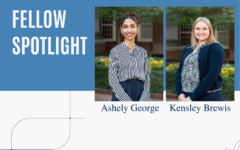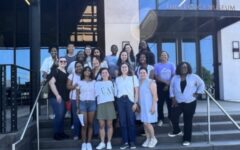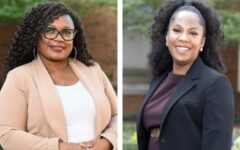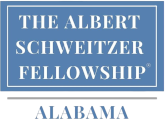Passion Project: What Drives These 2025-2026 Albert Schweitzer Fellows – Part 2
October 30, 2025 2025-11-03 15:42Passion Project: What Drives These 2025-2026 Albert Schweitzer Fellows – Part 2

Passion Project: What Drives These 2025-2026 Albert Schweitzer Fellows – Part 2
By Javacia Harris Bowser
The projects of the 2025-2026 Albert Schweitzer Fellows are underway. Though any Fellow can tell you that being willing to pivot is key to a successful project, one thing remains the same throughout the year — the passions that drive them. We had a chat with some of the 2025-2026 fellows to discuss not only their projects but the passion that motivated them to apply for the program.
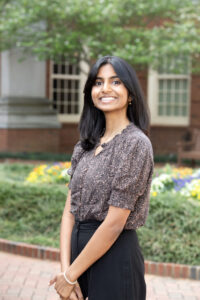
Divya Annamalai
Divya Annamalai believes cultural competency is one of the most important skills a health care provider can have.
“Given that the U.S. is becoming increasingly more global, cultural competency is becoming ever more pertinent,” she said.
As a student at UAB’s Heersink School of Medicine, Divya is expanding her education beyond the classroom and even beyond the exam room through her ASF project, for which she’s partnered with the Alabama Interfaith Refugee Partnership (ALIRP).
“My project will use Photovoice as a research method to better understand the experiences of refugee youth,” Divya explained. “Through this approach, participants will take photographs in their community that reflect their perspectives. These images, accompanied by focus groups, will provide insight into their lived experiences. This information will be helpful in learning more about the unique needs of this population and how to better address them.”
Through this project, Divya hopes to learn how to help refugees better navigate language, financial, and cultural barriers so they can succeed in the U.S. Furthermore, she hopes the experience will help her be a more successful doctor as well.
“I also hope to better develop my leadership and problem-solving skills through my fellowship project,” she said, “as I imagine there will be situations where things don’t go to plan where I am required to think outside the box.”
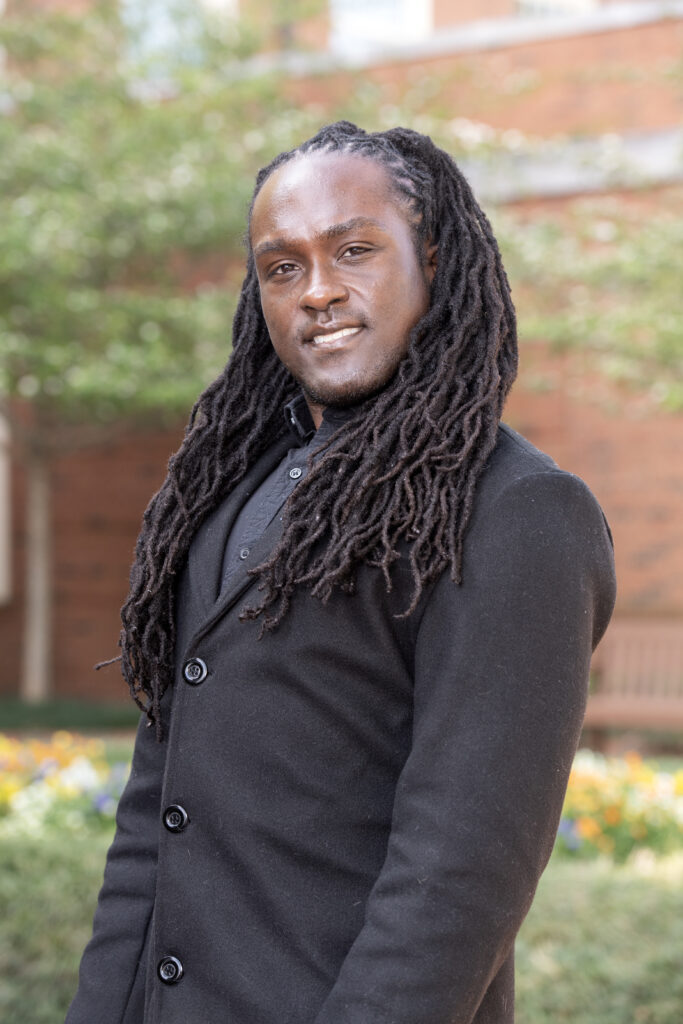
Shaul Gayle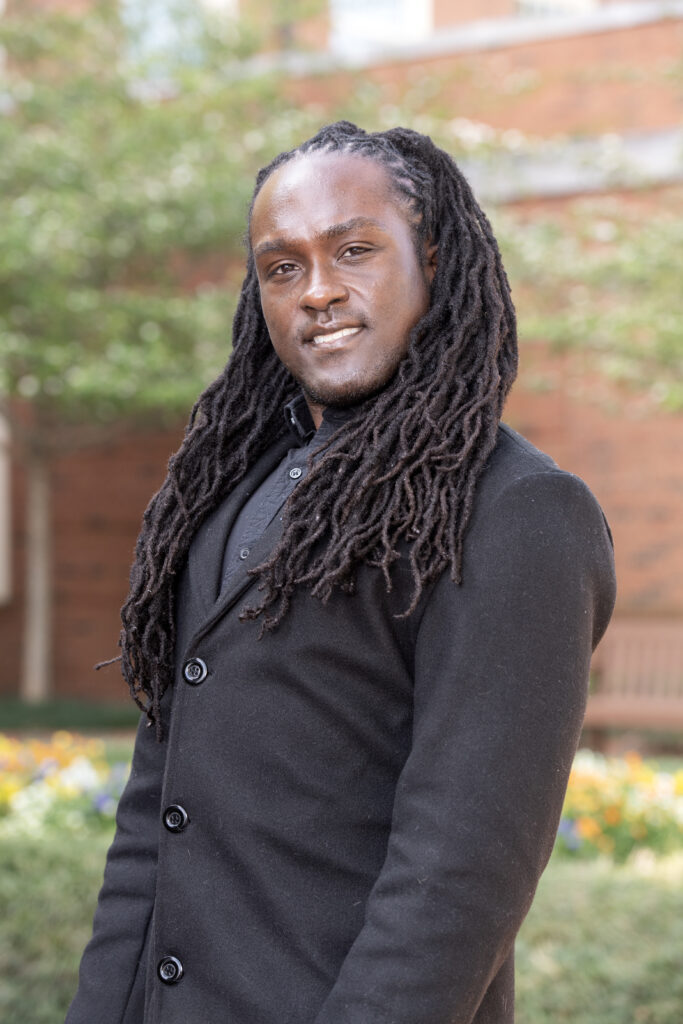
Shaul Gayle, a student at UAB’s School of Public Health, is passionate about environmental justice. Shaul has partnered with Greater-Birmingham Alliance to Stop Pollution (GASP) to help spread awareness of the hidden dangers of lead exposure, particularly in areas near heavy industry.
Shaul’s goal is to empower historically disenfranchised communities by giving them the information they need to protect their health by adopting lead safety practices, increasing lead testing for children to prevent permanent brain and nerve damage, and promoting political activism around this critical environmental justice issue.
“I hope this experience helps me grow, not only as an environmental researcher but also as one who centers community activism at the heart of my work,” Shaul said. “I want to utilize my research skills to improve or solve community issues. As this is my first research project, I see this powerfully shaping my career and service work in many ways, such as telling me where I can improve in my research and communication skills.”
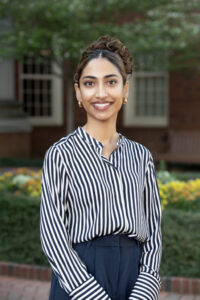
Ashely George
Ashely George, a student at both UAB’s School of Optometry and School of Public Health, has partnered with the Community of Hope Health Clinic (CHHC) to address the need for better eyecare in rural areas.
She plans to help develop an optometry protocol for CHHC’s mobile unit. The mobile optometry clinic will travel to underserved rural areas to provide vision screenings and care.
“Many live in eye care deserts or lack transportation to providers, leading to undiagnosed and untreated vision conditions,” she said. “By bringing eye care directly to these communities, I hope to reduce preventable blindness and enhance overall quality of life.”
Ashely’s long-term career goal is to find ways to integrate public health strategies into optometric care to advance health equity and her ASF project certainly aligns with that aspiration.
“My project will provide vision screenings, education, and resources to improve early detection and intervention for those at risk of vision-threatening conditions,” she said.
“This experience will shape my future career by providing the practical experience and insight needed to advocate for systemic changes in healthcare access, particularly in underserved areas. It will also guide me in designing sustainable, community-centered health interventions that align with my goal of improving health equity and vision care accessibility.”

Dan Zhang & Britney Le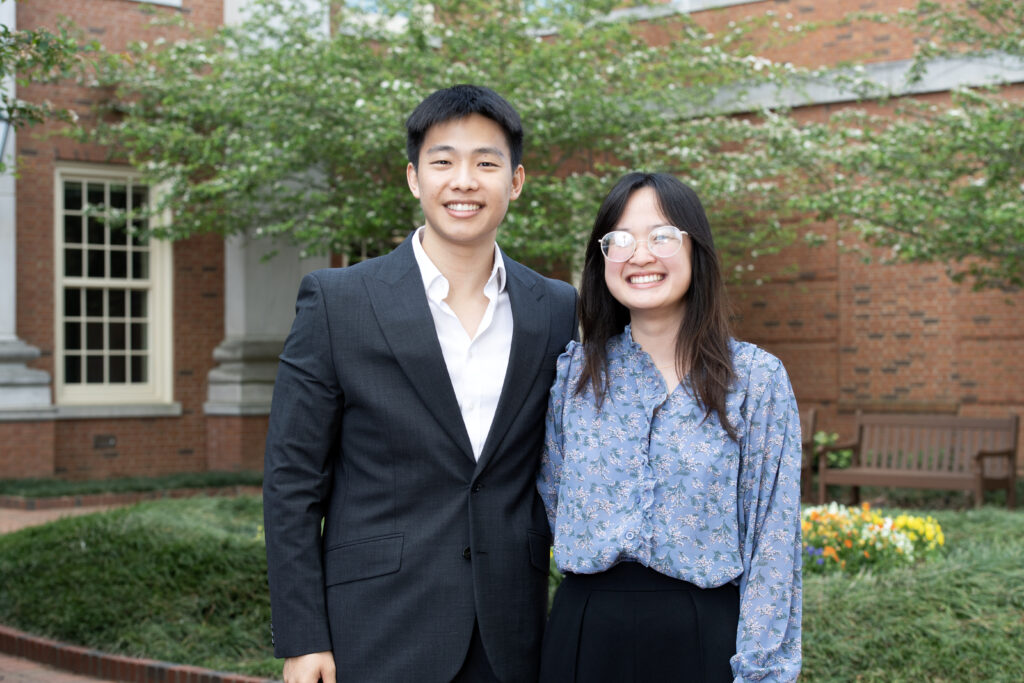
Dan Zhang and Britney Le, both students at UAB Heersink School of Medicine, believe children can develop cultural awareness and humility through food, and this can have a positive impact in overall health. That’s what they have set out to do during their fellowship year as they work with middle school children at the YMCA Family Branch in Downtown Birmingham.
“We hope to foster a strong sense of cultural awareness and humility among children by introducing them to various elements of different ethnic groups, such as food, literature, and art,” Dan said. “Our project addresses both cultural and nutritional disparities by providing children with engaging learning experiences about food, health, and diverse cultural traditions. Many children in underserved communities have limited exposure to culturally inclusive health education, which can negatively impact health outcomes in the long run. By fostering an early awareness and appreciation of cultural differences, we hope to empower the students to serve as advocates for themselves and others.”
Britney believes programs like these are important for areas throughout Alabama – even the city of Birmingham.
“Although Birmingham continues to grow as a diverse city, individuals who differ from the majority can still face exclusion and stereotyping, which can impact self-esteem and mental health,” she said. “Through our project, we aim to introduce diverse experiences at an early age, laying a foundation of curiosity and appreciation that can grow into long-term cultural competency and advocacy for those who are different from themselves.”
Dan and Britney added the children won’t be the only ones learning through this project.
“Through this initiative, I want to strengthen my ability to work with populations who are different from myself and reinforce my commitment to addressing health disparities,” Dan said. “As a future physician, I aim to approach every patient encounter with cultural humility and serve patients based on their unique needs.”
Britney plans to pursue a career in pediatrics so this project can be especially helpful for her.
“I have always had a passion for teaching children and love how quickly they are able to learn and show significant progress,” she said. “I hope to apply the skills I learn throughout this fellowship into my own professional practice in the future.”
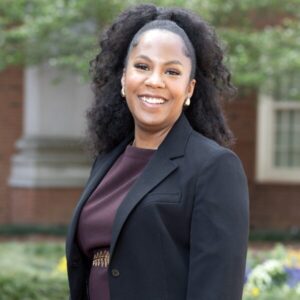
Christine Poole
Christine Poole has worked in the cancer care field for 10 years as a certified medical dosimetrist. But she wanted to do more.
“I felt a call to make a pivot and become more involved upstream in the preventative aspect of healthcare,” she said. So she went back to school for public health at the University of Alabama at Birmingham. And when she first learned about the Albert Schweitzer Fellowship, she instantly knew it was a program she wanted to be a part of.
For her project, Christine is partnering with Forge Breast Cancer Survivor Center to promoting awareness of early breast cancer detection and overall breast health education among Black women under 40.
“The age for women to get mammograms is still 40 years old, despite an increase in women under 40 being diagnosed with more and more aggressive breast cancers,” she said. “Statistics show that while Black women have lower incidence rates, the mortality rates are higher, and the outcomes are much worse. The saying is corny, but really is true: Education is POWER. The more that women know their family history, understand their bodies, and have the education and guidance to make good decisions, the more we can increase the chances at decreasing those odds.”
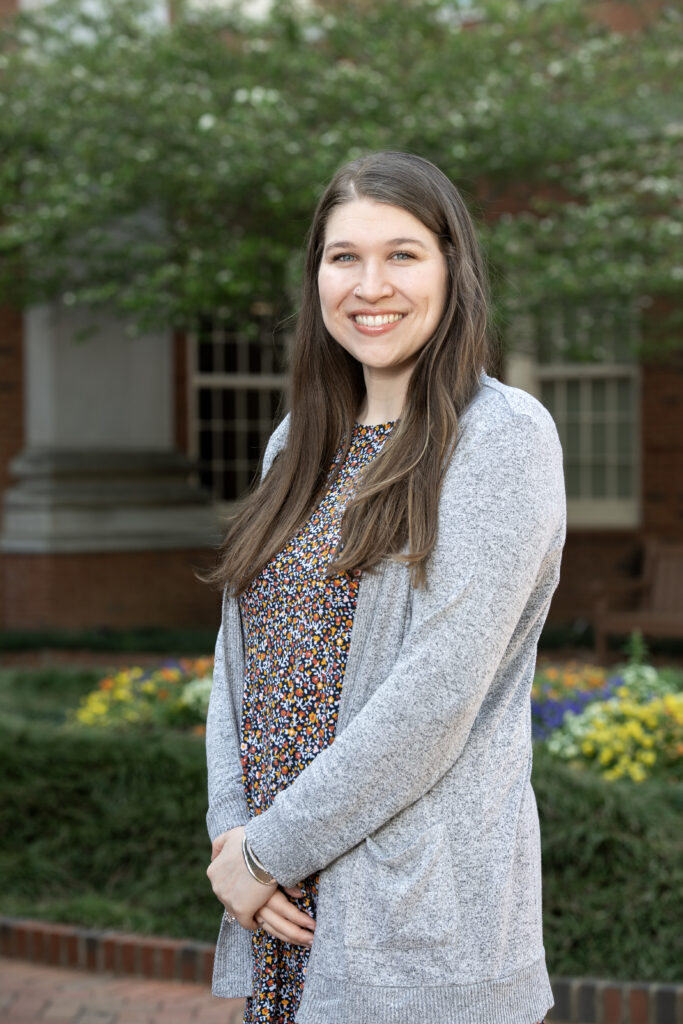
Kennedy Shoemaker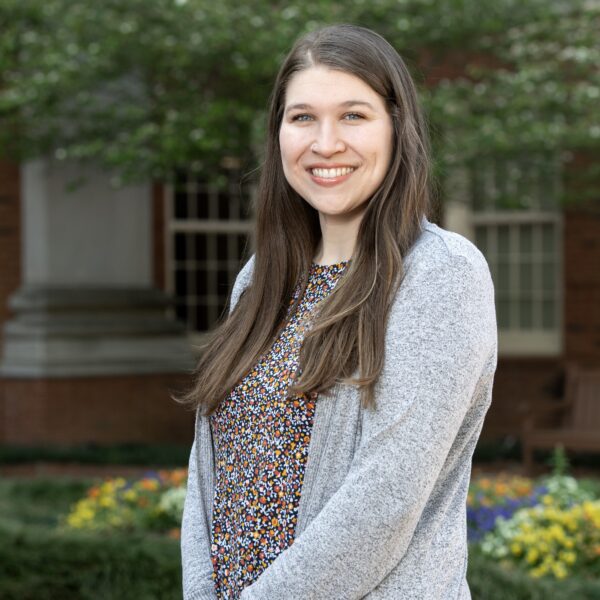
Kennedy Shoemaker, a student at Samford University’s McWhorter School of Pharmacy, has partnered with Cooper Green Mercy Health Services for a project centered on medication education.
“Through my project, I hope to impact my community by providing medication information at an appropriate literacy level while also addressing common questions,” she explained. “This in turn can help to strengthen a relationship and trust with patients and their pharmacy or healthcare providers. I also want to empower patients along their healthcare journeys to be an active participate in their treatment plans.”
Kennedy will be developing quick fact sheets so that patients can get answers to their questions even after they leave the clinic.
“I have always believed that ‘you don’t know what you don’t know,’” Kennedy said. “My project aims to provide information upfront to address any potential questions… I also want to address health literacy when providing this information. I feel that having information is not helpful if it is not understandable.”
Kennedy hopes she will learn plenty during her fellowship year too.
“I hope to see myself gain confidence in following my call for service,” she said. “I often doubt myself or question if as one person I can actually make a difference. I hope to see my mindset shift to knowing that any small change has a ripple effect, and everything must start somewhere with someone.”
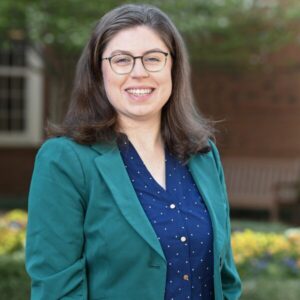
Callahan Thompson
Callahan Thompson is a student at the University of Alabama at Birmingham’s School of Nursing and has a passion for working with individuals in addiction recovery. As she works toward becoming a nurse practitioner, she wants to be prepared to give patients battling substance use disorders the care they need and deserve.
For her project, Callahan is working to develop a medication distribution system for the Foundry, a drug and alcohol rehabilitation program. She plans to host personalized medication workshops, too, with the goal of teaching participants how to properly manage their medications.
“Addiction recovery is an incredibly misunderstood, underfunded, and underrepresented community,” she said. “Though substance use disorder can affect anyone of any age, race, gender, sex, etc., I hope my project helps take care of these patients in a personalized manner that can sometimes be forgotten.”
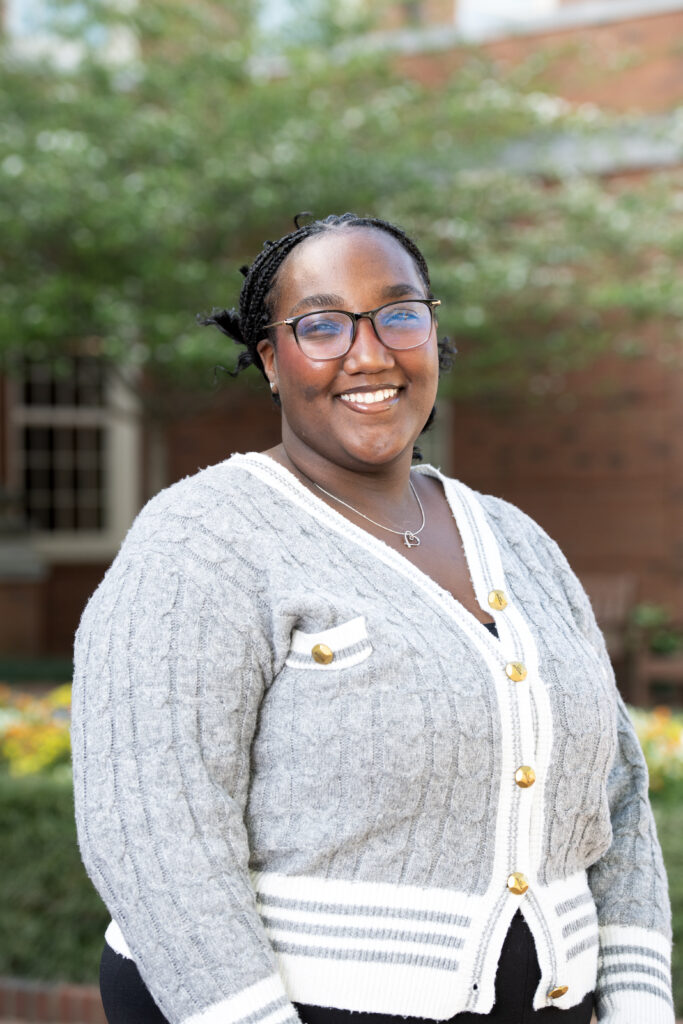
Parrissa Williams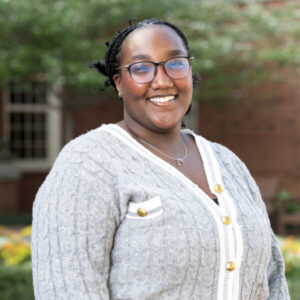
Parrissa Williams, who’s studying counseling at the University of Montevallo’s School of Education, has a passion for maternal mental health. For her fellowship year, she’s teaming up with BirthWell Partners to help mothers develop effective self-care practices during the postpartum period and throughout their recovery.
“Many mothers may feel guilty or overwhelmed by the idea of prioritizing their own needs over their baby’s, which can create resistance to adopting self-care practices,” Parrissa said. She hopes her project can help mothers overcome misconceptions about both mental health and self-care.
Throughout the fellowship year, Parrissa will make sure she practices what she preaches as she balances the project with school and other responsibilities.
“Just as I would encourage new mothers to prioritize small acts of self-nurturing—such as proper rest, nutrition, and moments of quiet, and grounding techniques—I aim to do the same for myself,” she said. Parrissa also believes the project will make her a better health care provider in the future.
“I hope to gain a deeper understanding of how to effectively support and advocate for vulnerable populations, populations like postpartum mothers, by expanding my knowledge of community-based interventions, maternal mental health, and culturally responsive care,” she said. “I also look forward to growing in self-awareness, leadership, and compassion through the engagement and reflective learning.”

